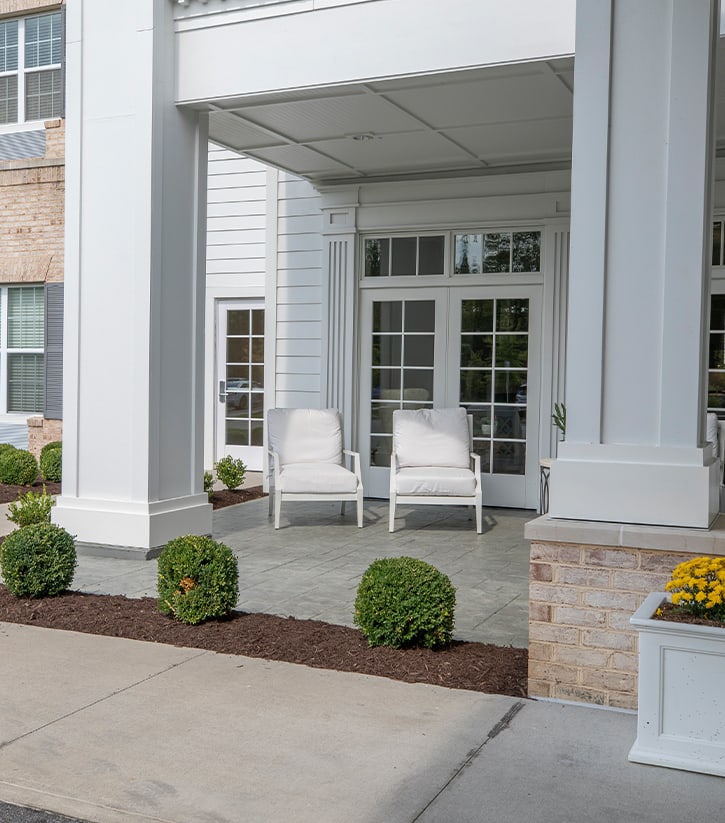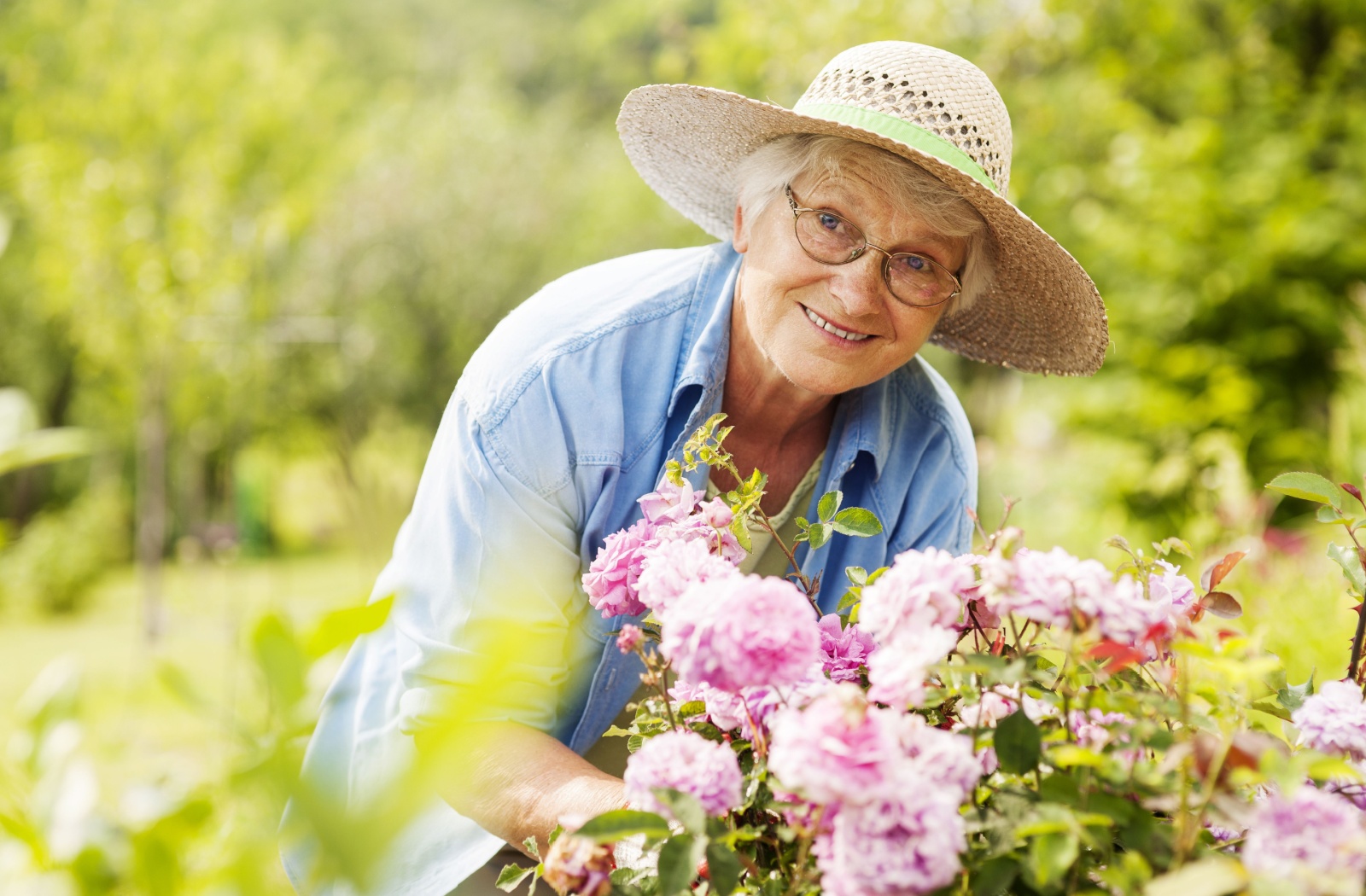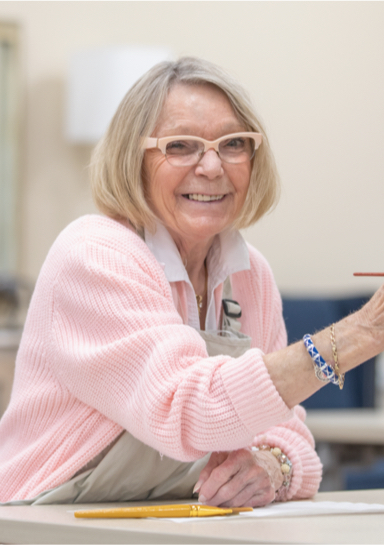Gardening is more than just planting flowers or picking fresh vegetables. It’s an incredible pathway that can help support health and wellness at any age. With a pastime like gardening, older adults can work towards a vibrant, engaged, and independent lifestyle every day.
Gardening offers unique ways to support health, maintain strong relationships, and care for a person’s overall well-being. With benefits that extend from your body to your brain, it’s a fulfilling hobby that can adapt to your changing life.
Staying Physically Active Through Gardening
Gardening is a wonderful way to keep moving and maintain an active lifestyle. It requires more activity than some people think—it’s not just about picking leaves, after all!
Gardening involves plenty of physical effort due to activities such as:
- Digging & planting, working various muscle groups
- Weeding, requiring stretching & strengthening movements
- Carrying soil, pots, or tools, promoting improved balance & endurance
- Watering plants, involving repetitive motions that keep the body active
- Pruning & trimming, improving hand-eye coordination & dexterity
These movements play a key role in improving balance, flexibility, and overall mobility. Activities that strengthen these vital physical skills can help reduce the risk of falls, keeping older adults healthier and independent for longer.
Gardening can encourage healthier eating. Older adults who cultivate their own vegetables are more likely to enjoy and integrate that fresh, home-grown produce into their regular diet.
Gardening’s Effects on Mental Well-Being
Spending time in a garden offers plenty of peace and quiet. Setting time aside for mindfulness is valuable, especially as we age. Gardening can provide a restful, restorative opportunity to enjoy the present.
A garden can be a person’s safe haven, lowering stress levels and promoting calmness. Just touching the soil, soaking up sunlight, and breathing fresh air can work wonders for emotional balance.
Gardening can help improve overall mental health. It can lift a person’s mood and reduce the risk of anxiety or depression. It even offers a strong sense of purpose, as achieving a goal offers rewarding feelings of accomplishment.
Whether a person engages in quiet mindfulness or simply enjoys the beauty of their garden, these peaceful practices help center thoughts and cultivate happiness.
Cognitive Health in the Garden
Gardening goes beyond physical and mental health to sharpen your cognitive skills. The mind stays alert since a person has to plan ahead. Gardening requires:
- Choosing the right plants for the season & environment
- Organizing tools & supplies for tasks
- Monitoring plant growth & making adjustments as needed
- Learning about soil types, pests, & fertilizer use
- Solving problems like limited space or unexpected weather
As the brain exercises, it strengthens itself just like a muscle. Gardening is an activity that encourages mental stimulation while reducing stress, which can help lower the risk of cognitive problems.

The Social Benefits of Gardening
While gardening is a great solo activity, sharing the experience amplifies the joy.
Communal gardening can bring a new layer of connection to your social circles. Joining a local community gardening group or attending garden clubs creates a sense of belonging. It’s an inspiring way to meet new people with shared interests.
Meanwhile, social gardens help strengthen a social network and create a more connected community. Older adults can invest time in a shared activity, meeting new friends and taking pride in what they can accomplish together.
Socialization is closely linked to boosted mental health, cognitive abilities, and a higher quality of life.
Tips for Seniors Looking to Begin Gardening
Starting a garden can be an incredibly rewarding and accessible hobby. You don’t need to be an expert to be successful. Instead, it helps to start small.
You can help an older loved one begin a garden by:
- Choosing a location with plenty of sunlight for the plants to thrive
- Starting with easy-to-grow plants, such as herbs or flowers, to build confidence
- Using raised garden beds or potted plants to reduce strain on the back & knees
- Investing in lightweight, ergonomic gardening tools for added comfort & ease of use
- Establishing a watering schedule so the plants receive consistent care
- Encouraging composting to create nutrient-rich soil while reducing waste
- Making gardening a social activity by joining local gardening clubs or groups
These tips help make gardening more accessible, social, and enjoyable.
The Joys of an Active, Healthy Lifestyle
Gardening isn’t just about nurturing plants—it’s about nurturing yourself. It’s an enriching, engaging activity that offers older adults a range of physical, mental, cognitive, and social benefits.
And even better—it’s simply an enjoyable way to spend an afternoon. A garden can be a safe space where older adults can feel at peace.
At Woodland Hills, we celebrate the hobbies and passions that bring a person happiness. A simple gardening session could unlock relaxation, creativity, and a deep connection to nature. Schedule a tour with our community today!














